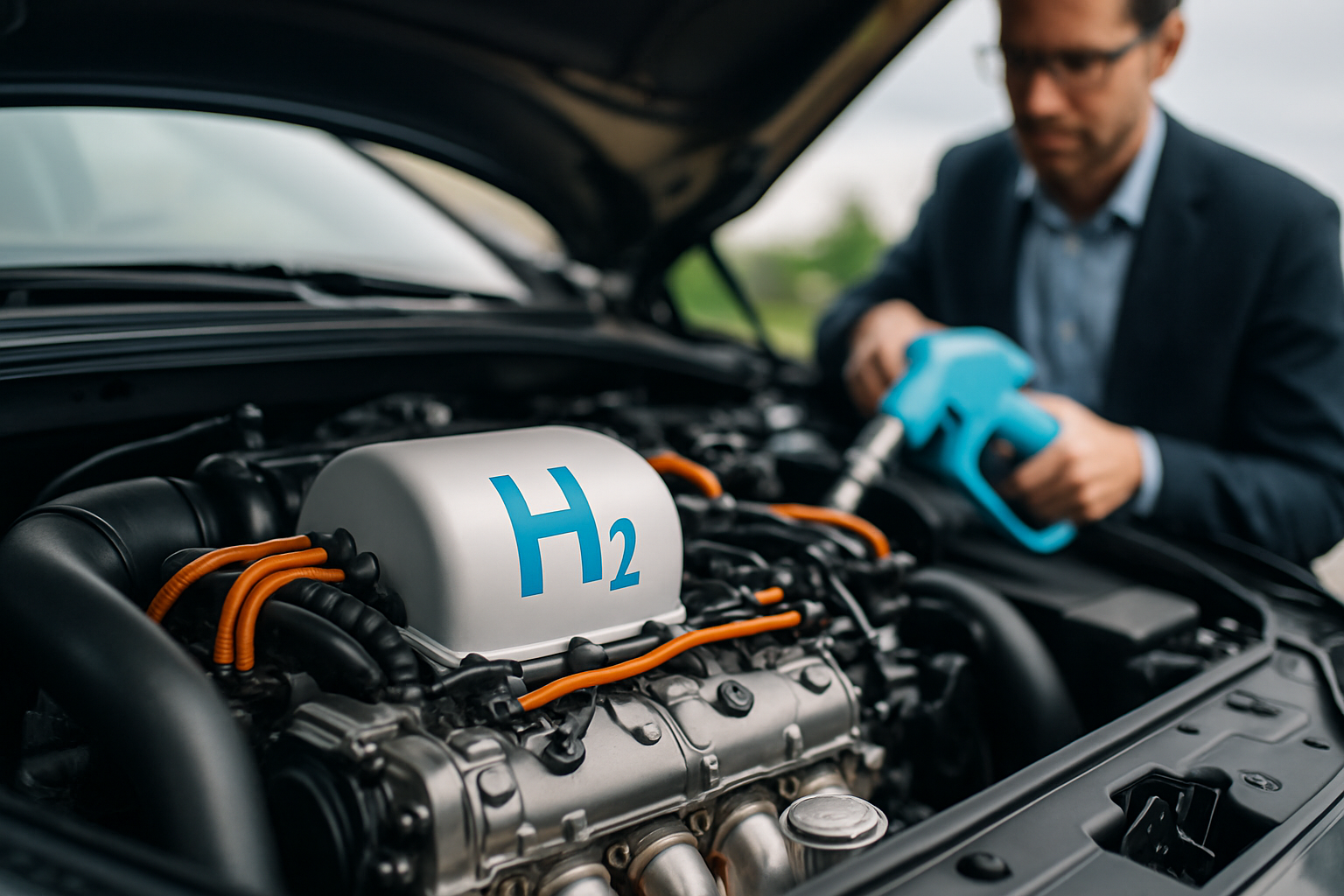Harnessing Hydrogen: The Next Frontier in Motorsport Fuel
Imagine a race car roaring down the straightaway, its engine emitting nothing but water vapor. This isn't science fiction; it's the potential future of motorsport, powered by hydrogen fuel cells. As the automotive world seeks cleaner alternatives, hydrogen is emerging as a promising contender, especially in the high-octane realm of racing.

The potential for hydrogen in motorsport lies in its energy density. Hydrogen can store more energy per unit of mass than batteries, allowing for longer ranges and quicker refueling times. This characteristic is particularly crucial in endurance racing, where pit stop efficiency can make or break a team’s performance.
Hydrogen’s Racing Pedigree
While hydrogen fuel cells are still in their infancy in consumer vehicles, they’ve already made appearances on the racetrack. In 2013, a hydrogen-powered Aston Martin Rapide S became the first hydrogen car to complete a lap in an international race at the Nürburgring 24 Hours. This milestone demonstrated the technology’s potential in high-performance applications.
More recently, the MissionH24 project, a collaboration between the Automobile Club de l’Ouest and GreenGT, has been developing hydrogen-electric prototypes for endurance racing. Their goal is to introduce a dedicated hydrogen class at the iconic 24 Hours of Le Mans, potentially as soon as 2024.
Engineering Challenges and Innovations
Adapting hydrogen fuel cell technology for the demanding environment of motorsport presents unique challenges. Engineers must balance the need for performance with safety considerations, particularly in the event of a crash. High-pressure hydrogen storage tanks must be robust enough to withstand impacts while remaining lightweight to maintain competitive speeds.
Thermal management is another crucial aspect. Fuel cells generate significant heat during operation, requiring advanced cooling systems to maintain optimal performance. Racing teams are developing innovative solutions, such as integrating cooling channels into the vehicle’s structure, to address this challenge.
The Pit Stop Revolution
One of the most exciting aspects of hydrogen in motorsport is its potential to revolutionize pit stops. Unlike battery electric vehicles, which require lengthy charging times, hydrogen-powered cars can be refueled in a matter of minutes, similar to conventional gasoline vehicles. This rapid refueling capability could maintain the strategic element of pit stops that fans and teams alike have come to appreciate.
However, the infrastructure for high-speed hydrogen refueling in a racing environment is still under development. Companies are working on solutions that can deliver hydrogen at extremely high pressures and flow rates, ensuring that pit stops remain quick and efficient.
Environmental Implications and Green Hydrogen
While hydrogen fuel cells produce zero emissions at the point of use, the overall environmental impact depends on how the hydrogen is produced. Currently, most hydrogen is derived from natural gas through a process called steam methane reforming, which does produce carbon emissions.
The racing industry is pushing for the adoption of green hydrogen, produced through electrolysis powered by renewable energy sources. This approach would create a truly zero-emission fuel cycle, from production to use. As motorsport often serves as a testbed for new technologies, advancements in green hydrogen production for racing could accelerate its adoption in other sectors.
The Future of Hydrogen in Motorsport
As hydrogen technology continues to evolve, we can expect to see more hydrogen-powered vehicles on racetracks around the world. The FIA, motorsport’s governing body, has expressed interest in hydrogen as part of its sustainability strategy. This endorsement could lead to the creation of new racing categories or the integration of hydrogen power into existing series.
The development of hydrogen technology in motorsport has broader implications for the automotive industry as a whole. Innovations in fuel cell efficiency, hydrogen storage, and refueling infrastructure could accelerate the adoption of hydrogen-powered vehicles on public roads.
Moreover, the visibility of hydrogen technology in high-profile racing events could help increase public awareness and acceptance of this alternative fuel source. As spectators witness the performance and reliability of hydrogen-powered race cars, it may help dispel concerns about the technology’s viability in everyday applications.
In conclusion, hydrogen fuel cells represent an exciting frontier in motorsport, offering the potential for high-performance, zero-emission racing. As engineers overcome the technical challenges and racing organizations embrace this technology, we may be witnessing the dawn of a new era in automotive competition. The roar of engines may soon be replaced by the quiet hum of fuel cells, but the thrill of racing will remain as intense as ever.






